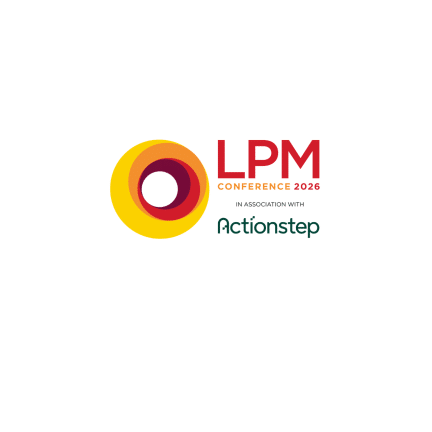
Creating pathways for diverse talent with the SQE
The SQE aims to make solicitor qualification more accessible and flexible. But true diversity in the profession also demands proactive, inclusive strategies from law firms. Jonathan Worrell, director of business development at BARBRI, explores how firms can harness the SQE to widen access, support underrepresented talent and create lasting, meaningful impact
The route to solicitor qualification changed in 2021 with the discontinuation of the legal practice course (LPC). For anyone starting a law degree or equivalent after September 2021, the Solicitors Qualifying Examination (SQE) is the only route to qualification. The LPC remains available under transitional arrangements until 2032 — but for the next generation of legal professionals, the SQE is now the standard.
This shift was intended to create a more flexible, affordable and accessible route to becoming a solicitor, but meaningful inclusion doesn’t happen automatically. Structural change alone won’t remove the barriers many aspiring solicitors still face.
Real progress depends on how firms choose to implement the SQE — and whether they use it as a moment to proactively create pathways for diverse talent.
At BARBRI, we’ve seen first-hand the difference that intentional, inclusive SQE programmes can make. Across our work with over 250 law firms — from SME firms to global players — one thing is clear: firms that embed inclusion into their SQE strategy are building stronger, more sustainable talent pipelines.
Understanding the barriers diverse candidates face
While the SQE removes some financial and structural hurdles compared to the LPC route, many barriers remain, particularly for candidates from underrepresented backgrounds. These include:
- The financial strain of exam fees, training costs and lost income during study periods
- Lack of access to professional networks and qualifying work experience (QWE)
- Balancing study with work, family and other responsibilities
- Lower confidence and fewer role models in the profession
Candidates from ethnically diverse backgrounds, lower socio-economic groups and first-generation university graduates are more likely to face these barriers. In a recent BARBRI survey, 36% of students reported having individual learning needs — reinforcing the importance of personalised, flexible support.
The good news? Structured, supportive SQE programmes can make a real difference, and the data proves it.
Breaking down barriers in practice
At BARBRI, our approach to SQE preparation is designed to reduce these barriers and support diverse talent at every step. And the results we’ve seen across diverse candidate groups speak volumes about the power of inclusive design.
In both the July 2023 and January 2024 SQE sittings, BARBRI candidates from ethnically diverse backgrounds consistently outperformed the SRA industry reported average. Our pass rates were between 3% and 31% higher across all ethnicity categories, including Asian, Black, mixed/multiple and other ethnic groups. In fact, since the SQE was introduced, BARBRI candidates from these groups have outperformed the SRA average in every sitting.
The trend continues beyond ethnicity. For candidates whose first language is not English, our pass rate in January 2024 was 64%, compared to the SRA average of 51%.
This is a result of structured, flexible, student-first SQE programmes — backed by personalised coaching, wellbeing support and a focus on long-term success.
How firms can support diverse talent through the SQE
If firms want to build a more inclusive profession, they need to work to remove the barriers diverse candidates face. That means:
- Providing financial support, whether through exam funding, paid study leave or access to scholarships
- Offering clear QWE pathways and helping candidates access meaningful work experience
- Training supervisors to understand the SQE pathway and how to support diverse candidates
- Enabling flexible learning options so candidates can balance study, work and personal commitments
- Embedding wellbeing initiatives, mentoring and coaching support throughout the qualification journey.
Some 82% of SME firms say they struggle to attract and recruit talent, while 48% face retention challenges – particularly as Gen Z candidates prioritise flexibility, purpose and wellbeing. Firms that embed these principles into their SQE strategy aren’t just supporting individuals, they’re strengthening their own talent pipeline and future-proofing their business.
The business case for inclusion
The next generation of legal talent expects more from their employers. Younger professionals, particularly Gen Z candidates, are increasingly prioritising diversity, inclusion, wellbeing and purpose when choosing where to build their careers. For firms looking to attract and retain the best talent, these aren’t nice-to-haves — they’re essential.
Firms that fail to act risk falling behind, both in recruitment and retention. Those that embrace inclusive, forward-thinking SQE strategies are already seeing the benefits — stronger engagement, lower attrition and a more resilient, future-ready workforce.
Turning opportunity into action
The SQE opens the door to a more accessible, modern route to qualification. But the firms that truly benefit will be the ones who embed inclusion, flexibility and structured support into their approach.
We’re proud to champion diversity and inclusion in the legal profession. Through initiatives like BARBRI Bridges, funded places for underrepresented candidates and wellbeing support built into every programme, we’re supporting both firms and future solicitors to succeed, not just in qualification, but throughout their careers.
Ready to build an inclusive SQE strategy that supports diverse talent? Contact Jon Worrell today to find out how BARBRI can help your firm widen access, reduce barriers and create sustainable pathways to qualification.




